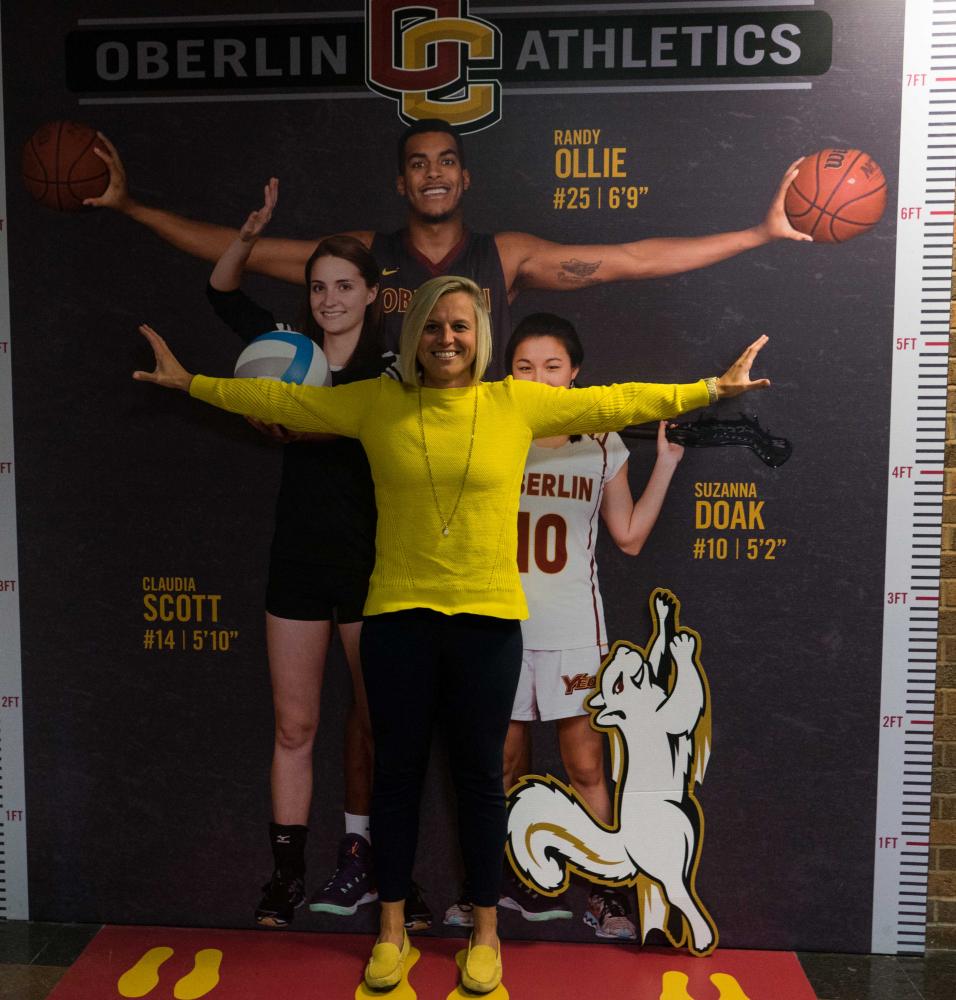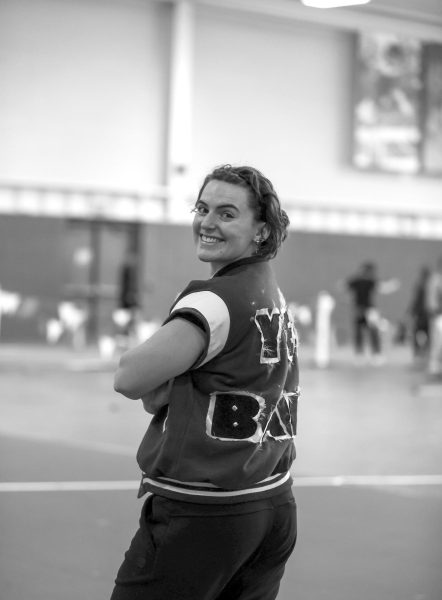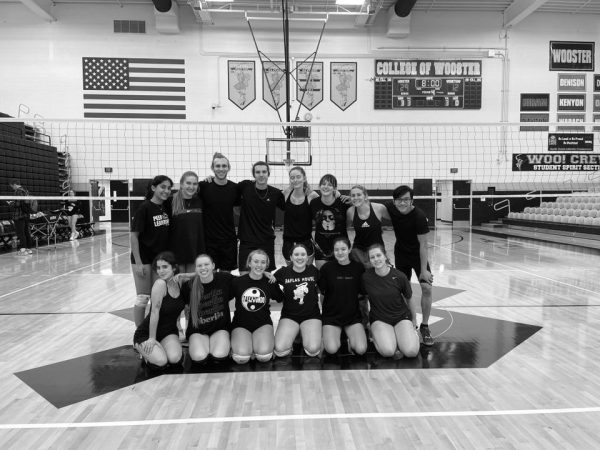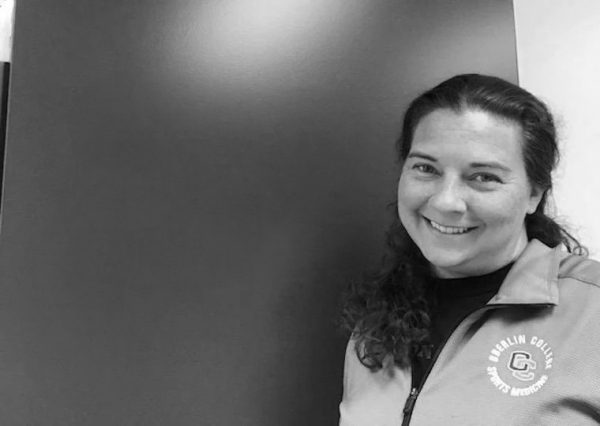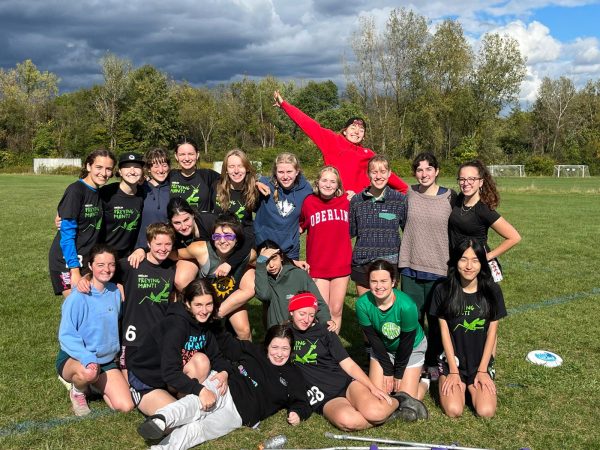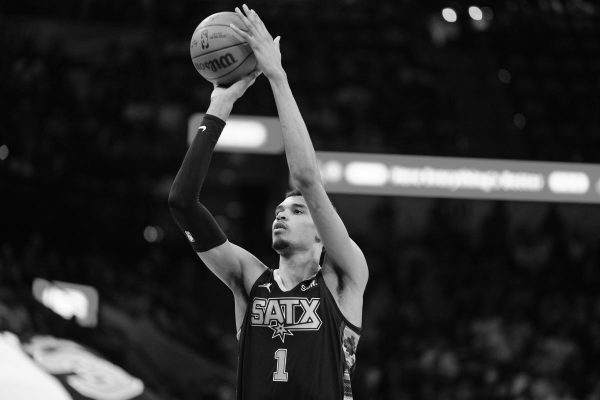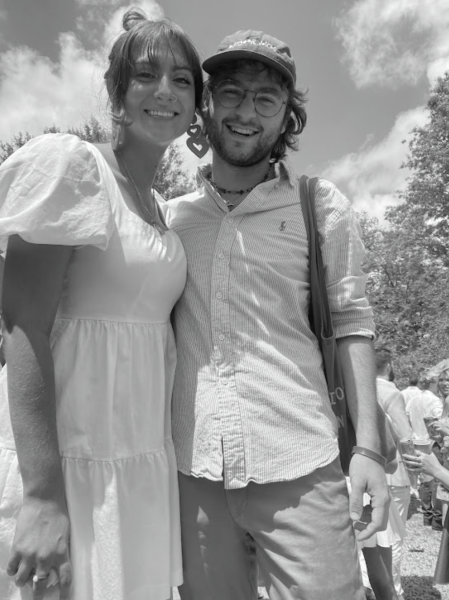In The Locker Room with Delta Lodge Athletics Director Natalie Winkelfoos
Natalie Winkelfoos, Delta Lodge Athletics Director
This week, the Review sat down with Delta Lodge Athletics Director Natalie Winkelfoos. A former Division III basketball player at Baldwin Wallace University, the Ohio native is entering her sixth year as Oberlin’s Athletic Director. She discussed her journey to Oberlin, her views on the Oberlin Athletics Department, and the role sports plays in social justice and reform.
This interview has been edited for length and clarity.
How did you end up working here at Oberlin?
I was a college athlete. I got to know that you could have a job on a college campus as a student. I worked in the admissions office, I worked in the vice president’s office, so I got to see you can come to work every day on a college campus, and [I thought] that was pretty cool. Upon my graduation, I immediately went to grad school and got my master’s in higher administration. I thought I’d go more of a student affairs or student health route, but then I realized that so much of my identity was as an athlete, and I missed [that part of my life]. When talking to my college coach, she asked me what I wanted to do, and I said I wanted to be an athletic director, so she told me to start by coaching. [She said] to be a strong administrator, you should coach first.
There was an opening at Oberlin as the assistant women’s basketball coach, and at that time the program was not good, to put it nicely. … I did a little bit of research, and I came out for an interview, and I just think that [Oberlin] is a hidden gem of Ohio. I am from Ohio, but this is not my world and I didn’t know this existed here.
Once I got here, I figured out that this was a place I could help, but then could also continue to help me grow. It’s a really cool vibe, something really different from the small town I was from. I got hired and basically just began to explore here, coaching basketball for a few years and [taking] on some administrative jobs, and ended up climbing the ladder that way. I never thought I’d be here this long, I didn’t think it was my home, but I certainly found a home here.
What do you like about working with Oberlin athletes? What do you think makes them different from athletes at other colleges and universities?
They’re intelligent. I consider my challenges, [and] I’d much rather have Oberlin challenges than any other institution’s problems. I think our kids are smart — they’re wickedly talented. There’s a passion that exists here that’s bigger than a game. Don’t get me wrong, I love games; I love the scoreboard; I love winning and losing — winning more — but I think that there’s a thought process with our Oberlin athletes that’s different from other places.
I learn so much from our student-athletes, and I love watching them compete. With the climb that we’ve been on, I’ve been able to witness the culture change, and to see the self-confidence with student-athletes increase is incredible. To see the comfort level in the weight room, and [when our student-athletes learn] how physical health parlays into mental health is incredible. I’m a witness to greatness everyday.
We’ve seen leaders in the Oberlin athletics community attempt to “close the divide” between athletics and other aspects of campus life. Do you think this “divide” is present and problematic? Are there any remedies for this gap?
I do think it exists on every college campus to some extent. My colleagues in the [North Coast Athletic Conference] are talking about this, so it’s not just an Oberlin issue, but nonetheless, there is a divide on our campus. I think that it’s getting better, but I think there needs to be a concerted effort, and lots of conversations. I think Monday’s “Athletics 101” conversation was a good start, but we need to hear from some of the people [from outside of the Athleticsw Department]. [Someone who] perhaps doesn’t always understand the value of competition, or the drive to be physically fit and healthy. I certainly see the importance of that, but it’s taken some time to find the right partners on campus that can help us tell our story on why we’re important to campus. Athletics is a valuable component on any college campus, but I think it also has to be managed appropriately.
The divide can be bigger and nastier if you have student athletes that aren’t exuding the ethics of admission into Oberlin College. We don’t have those kind of student-athletes. I’m really proud of having the student-athletes that I have the privilege of working with. They go about things the right way, and, as I was saying earlier, there’s a certain thought process there that’s different than a lot of other campuses. We have a very strong community; we can pretty much do anything. We just need to seen as valuable partners.
In light of recent political unrest emerging from the NFL and the NBA, what do you think is the role of sports in social justice movements?
I think that [sports and social justice] go hand-in-hand, and they have for 50-plus years. There was a little bit of a lag. First there were the Muhammad Ali days, but [athletes in the ’90s like] Michael Jordan and Tiger Woods refused to make any sort of political statement. Michael Jordan was asked to throw his weight behind a Democratic candidate from his home state of North Carolina, and he [reportedly] said, “Republicans buy shoes too.”
Now, you see [guys like] Colin Kaepernick and LeBron [James] who are very vocal. Having LeBron stand on the same stage with Hillary Clinton was amazing. It’s awesome. I think that athletics play a huge role in our world — that’s why there’s a sports’ section in a newspaper. Whatever gets the attention and gets people talking, I’m all for it. I see nothing wrong with taking the knee. I know that our field hockey team has done that, and I believe our volleyball team has plans of doing it. That’s their right, and I support them.


